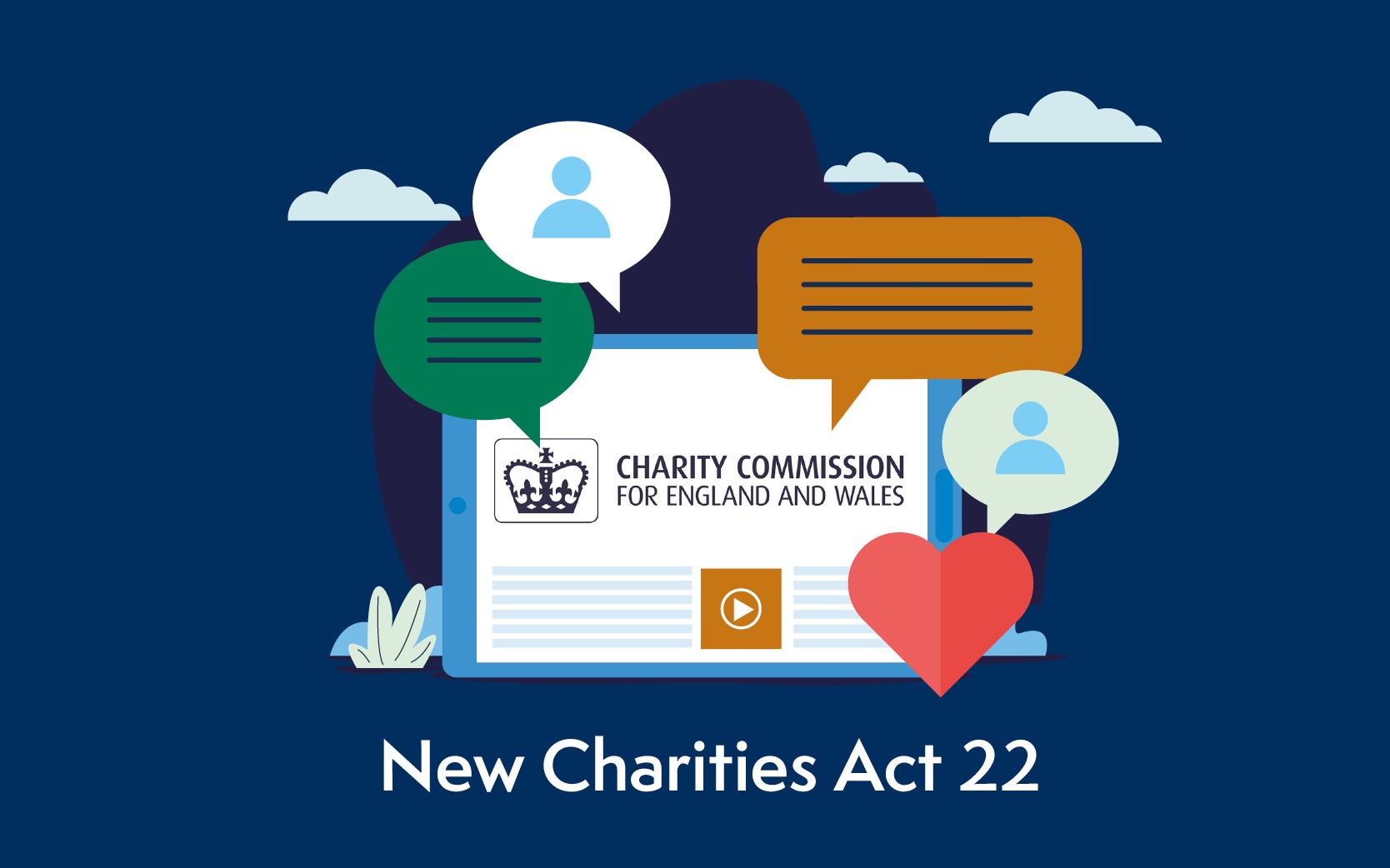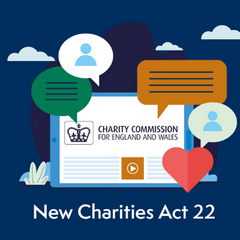The Charities Act 2022 became law in February last year and delivers a range of changes affecting charities. The first set of changes came into effect on 31st October 2022 and further changes are due to come into effect in the spring and autumn of this year.
If you’re an unincorporated charity, charitable trust or charitable unincorporated association, here’s an outline of the changes – some already arrived – due to happen over the next few months and what to be aware of.
Reducing red tape may be welcome a change
While the Charities Act is not revolutionising the governance of charities it does introduce many changes that are hoped will reduce red tape, increase efficiency and ease of process in many areas.
Aarti Thakor, Director of Legal & Accounting Services at the Charity Commission has said about the Charities Act, “it is designed to make a positive, practical difference to charities and where possible, to make things easier for trustees”.
Whilst the act will probably not impact on the day-to-day too onerously, certain technical changes should make it easier for the third sector to do things, such as amending their governing document and selling property.
October 2022 changes already in force
Extended power to pay trustees: In certain circumstances, charities already had a statutory power to pay trustees for providing a service to the charity beyond their usual trustee duties. Now, charities have an extended power to pay trustees for goods connected to that service, in addition to the service. For example, IT consultancy, plumbing, decorating, and any associated materials required for that service, such as laptops, plumbing parts or paint.
New guidance on fundraising appeals: For fundraising appeals that do not raise enough, sometimes called ‘failed appeals’ or raise too much over their target amount, there is a reduction in the administrative complexities around what trustees can do with the funds, or where they cannot be used for what was originally intended:
- Charities will no longer have to wait six months for donors to ask for a refund
- There is a simpler process for obtaining the Commission’s authority, replacing the need for the Commission to make a scheme
- In cases where the donations to be spent on new purposes different to the purposes the funds were raised for and are less than £1000, trustees can act without the Commission’s involvement if they comply with the new legal requirements
New government guidance is available on fundraising appeals.
New power to amend Royal Charters: Royal Charter charities are now able to use a new statutory power to change sections in their Royal Charter which they could not previously have changed without approval by the Privy Council. Updated government guidance is available for Royal Charter charities and those seeking Charter status.
Tribunals can now make ‘authorised cost orders’: Orders can now be made in relation to prospective or current proceedings before the Tribunal (or on appeal from the Tribunal), to authorise payment out of the charity funds of any costs already incurred, or to be incurred by the charity, its trustees or any other person the charity or its trustees are ordered by the Tribunal to bear them. The new rule also permits the charity itself, as well as any of the trustees, to apply for an authorised costs order. This means the order covers the charity’s own legal costs as well as costs they might be ordered to pay.
Changes to come in spring 2023
The use of permanent endowments will be more flexible:
Use a wider range of advisers on sales of land: Charities will have more straightforward rules, previously criticised for being too prescriptive, on the advice they must obtain when it comes to sales of land. Charities will be able to access a much wider pool of professional advisors, potentially saving time and money on the process.
Previously charities had to enlist the advice of qualified surveyors who are members of the Royal Institution of Chartered Surveyors, now the Act will widen the category of “designated advisors” to include fellows of both The National Association of Estate Agents and The Central Association of Agricultural Valuers as well as qualified charity trustees, officers and employees.
New powers of the Commission over charity names: Possibly set to increase the risk of challenges and disputes over charity names, the Charity Commission will have extended powers in directing a charity to change its working and legal name and delay registration of a charity or a change in name if it’s deemed to be the same or too like the name of another charity.
Changes to come in autumn 2023
Easier amendments to governing documents: Most charities will have increased flexibility to respond to organisational, social and environmental needs with the ability to amend their government documents more easily. From autumn 2023 it is expected there will be clarification on the steps charities need to take and that only in certain circumstances will the approval of the Commission or Privy Council required.
More consistency in the tests applied when changing the charity’s purpose: Regardless of whether your charity is a charitable incorporated organisation (CIO), charitable company or unincorporated charity, the Charity Commission will have more consistency in the factors it considers if you’re changing its purpose. From autumn 2023, the Commission will consider the original purpose of a charity, how similar it is to the original and how suitable its purpose is.
Powers to ratify trustee appointments: If there’s a defect in the process of appointing a trustee, or uncertainty about the validity of an appointment, the Charity Commission will be able to make an order to ratify that appointment or election.
Charity incorporations or mergers to be easier: It’s expected the Act will make it easier for charities to transfer their assets by way of vesting declarations and get rid of the need for ‘shell charities’ to retain any legacies after a merger.
Keeping on top of the changes: To keep up with the forthcoming changes, you can read the Charity Commission’s blog and also consult government guidance on the Act.
As always we’d advise you speak to your FK accountant before making any big decisions in line with opportunities the changes may now present – we are here to soundboard and talk through what your options are. Our charity and not-for-profit team have extensive experience and can provide specialist audit, accounting and tax advice to the widest possible range of organisations, including: schools and other educational establishments, sports and cultural arts organisations, grant-making trusts, religious bodies, and professional institutions and associations.











